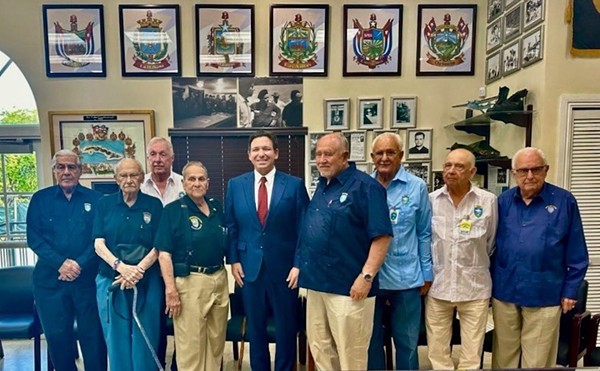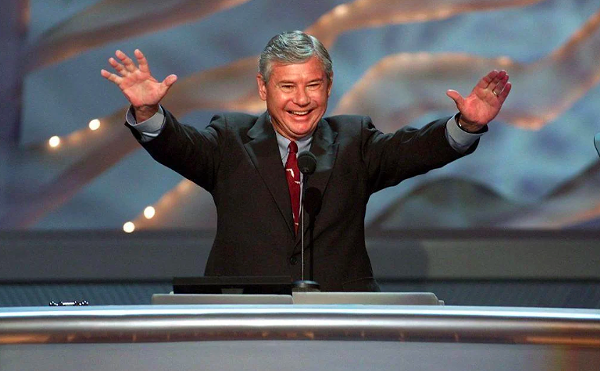"Democracy is stronger if everyone knows their rights and knows the facts," says Victoria Kirby, regional field director of Organizing for America. OFA encourages political involvement, quite literally, from the ground up. It organizes voter registration parties in neighborhoods and local hangouts, coordinates film nights and phone banks, and hosts house parties.
The involvement of local community members is a key part of the Obama campaign, which is relying heavily on the power of personal contact, face-to-face conversations, and word-of-mouth publicity.
"Events like this start the conversation," says Jayson Kirkman, host of the Coquina Key gathering. “It gets our community involved, lets them talk about what matters most to them, and lets them know exactly how much Barack Obama has done in the last four years, especially for the LGBT community.” Despite some grousing among LGBT activists in the early years of his administration that he wasn't moving fast enough, he has in fact done more to support the LGBT community than any other president in U.S. history.
On June 29, 2009, the first Pride weekend of Obama’s presidency and only months after he was elected, he hosted the first ever White House LGBT Pride reception. Later that year, he also signed the Matthew Shepard and James Byrd Jr. Hate Crime Prevention Act into law, and created a national resource center for LGBT elders.
A year later, both Obama and Vice President Joe Biden recorded videos for the "It Gets Better" project, which reaches out to LGBT teens to prevent suicide. The president’s contribution is one of the most popular videos of the project, with over 1.3 million views on YouTube to date.
More recently, the president repealed "Don’t Ask Don’t Tell," protected LGBT families against HUD housing discrimination, and publicly showed his support for marriage equality. (For a complete list of what the president has done for equal rights, take a look at this timeline.)
“Coming out in support of same-sex marriage was a daring thing for President Obama to do, especially right before an election,” says Ellen Levett, a volunteer for OFA. “It was such a daring move, to be the first president to do so. That gives permission to other politicians to support marriage equality, also. That’s true leadership.”
The LGBT community has a lot at stake in the upcoming election. There's a marked difference between Obama and Romney in their support (or lack thereof) for gay issues, points out Lacey Rose, deputy press secretary of OFA-Florida.
"The LGBT community is standing strong behind the president because he has done more to advance gay rights than any other," says Rose. “[His] record stands in stark contrast to Mitt Romney’s, who promised to be to the left of Senator Kennedy on gay rights and then made clear he would have left Don’t Ask, Don’t Tell in place and is working to enshrine discrimination into the Constitution by passing a federal marriage amendment. The community is supporting President Obama because they recognize he is committed to equal rights versus Mitt Romney who has pledged to roll back rights and benefits for gay Americans."
For all these reasons, outreach to the LGBT community is a key part of the Obama campaign. Following the meeting at Kirkman's home, the group was heading to Georgie’s Alibi to register voters and open conversations about Obama's gay rights record and his plans moving forward.
"I find that, in many of my conversations, people are only parroting what they’ve heard on Stephen Colbert, or Anderson Cooper, or Rush Limbaugh, without knowing all the facts,” says Davina Montgomery, another volunteer in support of LGBT for Obama. “And everyone is looking for a scapegoat. If you let them parrot, let them vent, and continue the conversation with kindness and a smile, it’s incredible the connections you can make."
With only months before the election, those connections are the strategy that the Obama campaign is relying upon to change minds and motivate communities to go to the ballot box, person by person, vote by single vote.
"If there was one thing I could tell the [LGBT youth]," says Levett, "it would be how important it is to vote. It’s our right, and our civic duty. So much depends on it. It’s the only way to create change."
For more information on ways to get involved in Organizing for America, to host a house party or attend one, you can visit Barack Obama’s website. Organizing for America is also celebrating an opening of its office in Pinellas Park on Friday, August 10. For more information click here.
















